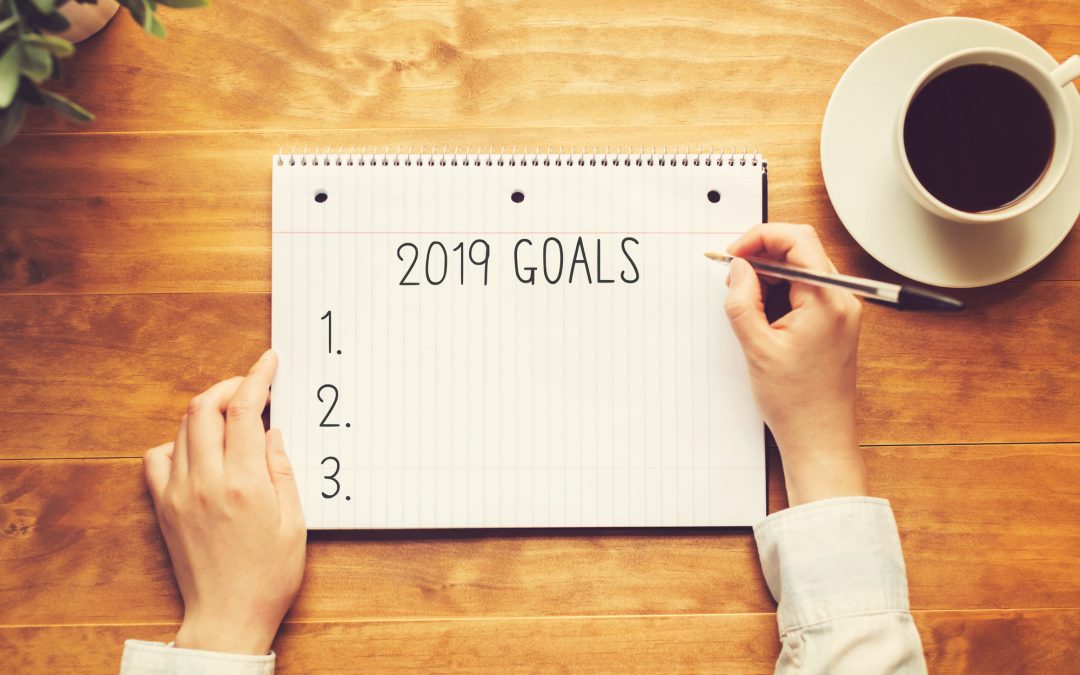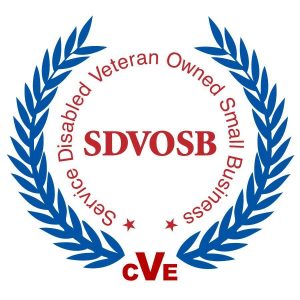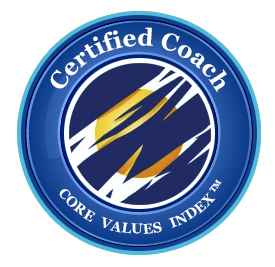
by Dr. JL Knight | Jul 16, 2019 | Components of Transformation, Decision Making, Discipline, Life Coaching, Mindset
Everyone makes mistakes. When I make a mistake, I own it. I learn from the error and am bettered by it. (I Can Do It)
I accept accountability for my decisions and actions. Being responsible is a way of being and thinking for me. It empowers me, because I feel increased control over events in my life. (I Can Do IT)
I take equal pride in my strengths and shortcomings. I refrain from making excuses. Instead, I develop resolutions. Resolutions are an acknowledgement of the challenges I face, coupled with a solution for overcoming.
For others, it may be easier to be irresponsible. Being accountable is demanding, but I rise to the occasion. I police my own actions because I have a responsibility to myself. I must be able to depend on myself before others can.
When I voice responsibility for my actions, others notice. I am an example for them to follow because I am reliable and trustworthy. They know they can depend on me. Because I am dependable, my decisions and actions affect and influence theirs.
Persistence, honesty, and integrity are fundamental traits I possess. I rely on these traits when I accept accountability for shortcomings.
Today, my ability to accept responsibility has a positive impact on others. I am looked to for guidance. I seek new ways to guide others. It feels great to know others can rely on me to help them overcome obstacles.
Self-Reflection Questions:
- Whom do I look to for guidance?
- How has being accountable had a positive impact in my life?
- Have I seen examples of the adverse effects of being irresponsible?
By Dr. Jacqueline L. Knight
The Business Transformation Coach, LLC
Copyright © 2019

by Dr. JL Knight | Jul 9, 2019 | Decision Making, Discipline, Setting Goals, Staying Disciplined, Take Action
Written by: Dr. Jacqueline L. Knight
The Business Transformation Coach, LLC
Copyright © 2019
Time management is an essential skill, and hour blocking is an easy and powerful way to master this skill. You can use it to block off hours in your schedule and get more things finished. It enables you to take control of the minutes in each day.
Follow this process to take advantage of this valuable technique:
- Start with planning. Make a list of all of your important tasks for the week. Then, narrow this list down to three to five essential tasks.
- Be realistic about your planning. Avoid thinking that you can do a million tasks in one day or week.
- Block your hours. After you have a short list of tasks, block the hours on your schedule. This is called time blocking and essentially requires you to take each hour and assign a task or item to it.
- Clump related tasks together and add them to specific blocks of time.
- Remember to schedule lunches and breaks. Taking time to rest your mind and body is important! Your breaks allow you to get back to your tasks with renewed energy.
- Reduce distractions. Hour blocking demands that you eliminate distractions, so you don’t lose focus.
- Figure out what your main distractions are. Do you waste time on social media or constantly check your phone? Do you spend hours in your email inbox and respond to every message instantly?
- Eliminate or reduce these distractions. You may want to set aside a specific chunk of time each day to handle your social media, email inbox, and other tasks that distract you from your more essential actions.
- Also, when you’re working, let others know that you’re busy so they can limit their interruptions.
- Keep the time blocks flexible. Unless you know the exact amount of time each task will take, it’s important to keep the time blocks flexible. This will also enable you to take care of other important things that come up with a minimum amount of stress or changes to your schedule.
- Review your time blocks regularly. Make adjustments as needed. If your tasks change, or you find that they take more or less time than you thought, modify your time blocks to take the new information into account.
- Reviewing your time blocks will also give you the chance to see when you’re most productive. If you do your best work in the morning, schedule more important tasks during these hours. Reviews will help you evaluate your productivity levels and decide which parts need attention.
- Another advantage of doing reviews is that it gives you the chance to see if your reminders are working or if they need to be changed. Use alerts on your phone or computer, sticky notes, or traditional alarms to remind you that it’s time to move to the next task. The key is to find something that works for you.
Effective time management can help you finish more tasks each day and feel more accomplished. Hour blocking is a useful method for anyone who is interested in greater productivity, either at home or at work.
You Can Do It!

by Dr. JL Knight | Jul 1, 2019 | Decision Making, Leadership Coaching, Life Coaching, Mindset, Personal Transformation
Finding a competent and compatible coach is only half the battle. It’s also important to develop your own coachability.
If you’re like most professionals, you probably want to succeed, but you may resist coaching for reasons that you’re not even aware of. However, you can develop skills and qualities that will prepare you to accept guidance and act on it.
Learn how to become more coachable. Use this checklist to find the areas you need to work on so you can have a successful relationship with your coach.
Communication Skills:
- Listen closely. Pay attention to what your coach has to say. Look for the truth in any message instead of dismissing their perspective or trying to make excuses. Maintain eye contact and resist any urge to interrupt.
- Ask questions. Ensure you understand what your coach is telling you. Paraphrase their statements in your own words. Clarify any points you’re unsure of and ask for concrete examples.
- Take your time. Let yourself absorb information fully. Focus on responding thoughtfully rather than quickly. If a situation stirs up strong feelings, give yourself an opportunity to calm down so you can think clearly.
- Welcome feedback. Ask others for input frequently and graciously. It helps to stay in practice and have multiple viewpoints while you’re working with your coach.
- Watch your body language. Ensure that your gestures and expressions are friendly and consistent with your words. Coaches are human. It’s easier for them to fully engage with you when they feel respected and appreciated.
- Open up. Recognize that there is more than one way to approach the same goals. Consider your coach’s suggestions even when they’re different from your usual methods.
Other Skills and Qualities:
- Value learning. Are you excited about adding to your knowledge and stretching your skills? Learning is a mindset that helps you to make sounder decisions and adapt to change. It can also motivate you to persevere through the coaching process.
- Set goals. While your coach can help you to reach your goals, you need to be sure that your targets are specific and meaningful for you. Write your goals out and tell others about them so you’ll feel more accountable.
- Adjust your expectations. Do you understand the difference between coaching and consulting? A consultant is usually hired to fix a specific issue. A coach works with you to build your strengths so you can achieve the outcomes you desire.
- Cultivate gratitude. Thank your coach for the positive impact they make in your life. Putting their insights into action is also an effective way to show them that they’re making a difference.
- Be humble. Remember that your coach and anyone you meet has valuable things that they can teach you. Tame your ego so you can create productive relationships and take advantage of rewarding opportunities.
- Practice consistently. How can you take what you learn from coaching and use it to make positive changes in your work life? Develop a strategy for enhancing your performance and set specific goals for areas where you want to grow. Deliberate practice requires discipline and effort, but it pays off.
- Evaluate your progress. Self-examination is an important part of the coaching process. Reflect on the areas that you’ve already covered and what you want to do next. Enjoy discovering more about yourself and your abilities.
Being coachable is about being ready and willing to learn and grow. Unlock your potential so you can achieve greater personal and professional success. Coaching can help you to clarify your vision and leverage your strengths if you know how to use the resources your coach provides.
Written by:
The Business Transformation Coach, LLC
Copyright © 2019

by Dr. JL Knight | Jan 1, 2019 | Decision Making, Mindset, Personal Transformation, Setting Goals
The New Year is the perfect time to start fresh. If there’s
any aspect of your life that you’d like to improve, set some clear and
attainable goals for yourself that will help you get there.
Take It Slow
Work towards your goal one piece at a time.
It’s important to take it slow and not take on too much at once. The main
reason that some people fail when it comes to their New Year’s goals is because
they fail to plan out a realistic path.
Follow Through With a Plan
It’s easy to say: “I
want to lose 50 pounds” or “I
want to learn a musical instrument.” Keep in mind that big goals like
these will take some time and effort. Diets are hard to start because you may
feel unmotivated or hungry. Musical instruments require time to master, and you
may start with weeks of just learning notes before getting to any fun melodies.
Remember that the beginning is tough. Muster up the courage and enthusiasm to
continue with your efforts. Remember that most people give up,
but you’re not most people, are you?
You’re different because, unlike most people, you’re going
to create a clear and realistic plan to take you right to success. If you’re
going to lose 50 pounds, define how you’re going to lose those pounds. Are you
starting an exercise routine? Are you going to join Weight Watchers or count
calories?
You know that you won’t lose the weight quickly; it’s a
steady loss that brings success. Even if you’re short a couple of pounds on one
of your short-term goals, you can revise your plan and kick up the pace, or
just continue on your path because you’ll reach your 50 pound goal before the
year is out. That’s what you’ll be able to accomplish with a solid plan in place.
Be Real
You have to stay realistic when it comes to your New Year’s
goals. The holidays are a joyful time, and often times you’ll feel motivated to
achieve something big. Know that you can
achieve big things, but there are also only 24 hours in a day.
Avoid making goals that would take more than a year to
complete. If you want to make a long-term goal like this, break it up into
parts and give yourself a realistic plan for your first year goal.
Visualize the Outcome
When you run into snags in the road, as you’re bound to in
life from time to time, it will help to visualize yourself reaching your
end goal. Visualizing it makes it feel real and motivates you to
continue to work hard to make it happen.
The Right Attitude
If you’re practicing the right attitude, you can go far.
It’s true that all you need to do is believe in yourself. You’ve
probably realized that if you don’t believe that you can accomplish something,
you simply won’t. How can you expect to achieve great things if you don’t
believe in yourself?
An optimistic attitude is critical to your success. Think
about how you felt when you first set your New Year’s goal. Chances are that
you had an excellent attitude, so try to maintain that mindset throughout your journey
to success with your goal.
Once you’ve determined a realistic goal and divided it up into short, achievable tasks, you’re bound for success as long as you take action to complete each step. Go ahead and make that New Year’s resolution, knowing that this year is going to be your most successful yet!
By Dr. Jacqueline L.Knight
Copyright © 2018 The Business Transformation Coach, LLC
By Dr. Jacqueline L.Knight
Copyright © 2018 The Business Transformation Coach, LLC

by Dr. JL Knight | Dec 24, 2018 | Decision Making, Personal Transformation, Transformation
Do you ever wonder why you’re here? After all, you were created with a unique set of passions and talents that no one else in the world can duplicate! Discovering your purpose in life lets you use your unique assortment of feelings and abilities to bring you greater self-fulfillment.
When you’re doing what you feel like you must have been born to do, you can create a life you enjoy through and through. Your goals will have more meaning to you and challenges will be naturally easier to overcome as you joyfully move toward achieving those goals.
This process for finding your life purpose enables you to tune in to your inner self and figure out what makes you tick. Take the time to find your purpose – your life will certainly change for the better!
Prepare Yourself
For this process, an open mind is optional but helpful. It doesn’t matter if you don’t think this will work – it just means it might take a little longer. All you really must have are a piece of paper, something to write with, and approximately an hour of peace and quiet.
As you’re doing this exercise, try to empty your mind as much as possible. The clearer your mind is, the quicker and easier the process will be. Also, do this while you’re relaxed, alone, and unlikely to be disturbed.
The Process
- Focus on your intention. Write at the top of your paper: “This is my life purpose.” This simple act sets your intention in your mind for the next hour.
- Begin listing your thoughts – even doubts about this process. As you clear your mind and focus on this process, write whatever comes to mind, no matter what it is. If you think to yourself, “This isn’t going to work,” then you would write, “This isn’t going to work.”
- Answering these questions will get you started. Then keep writing your thoughts until you find your life purpose.
- What are your talents and abilities?
- Which talents would you like to develop further? Why?
- What are your passions?
- Do you get joy from helping others? Who?
- Have you always wanted to be a philanthropist?
- What activities do you enjoy?
- What have you always wanted to do, but you haven’t done it yet?
- Who do you most enjoy being around? Adults? Children? Why?
- Do you love animals?
- Do you like to travel?
- Do you want more excitement in your life?
- What are your favorite books or movies? Why?
- How do you feel about your relationships?
- Do you take an interest in politics or world matters?
- What is your most important priority in your life? Family? Work? Something else?
- How will you know? You’ll just know. It will be the answer that fills you with the most emotion. You may even cry. The idea will resonate with you completely, and there won’t be any doubt. Just continue writing whatever comes into your mind until you reach that point.
- Commonly, answers will repeat themselves. A lot of unrelated nonsense is also likely to come out. Our brains can be a little cluttered, and this exercise will expose that fact. Don’t let anything you write distract you from your intentions; odd things quite frequently end up on the paper.
- There will be several answers along the path that feel pretty good to you, but remember, you’re looking for the big one. When you see the ones that are good, but not “it,” this means you’re close, but not quite on target yet.
- You’re looking for that one idea that feels overwhelming to you. In this exercise, it’s common for your life purpose to reveal itself in less than 100 ideas, but it can take as many as 400. Keep writing.
How Can I Apply My Life Purpose to Benefit Me?
Now that you’ve discovered your purpose, always try to honor it. To do so, keep it in mind consistently. Ask yourself, “Is this in alignment with my ultimate purpose?” A life lived like this, with direction and intentionality, is a life you can truly enjoy.
So don’t wait any longer; schedule a time to do this when you know you’ll have some peace and quiet. Knowing the core reason you’re here is one of the greatest gifts you could ever give yourself.
By Dr. Jacqueline L. Knight
Copyright © 2018 The Business Transformation Coach, LLC









